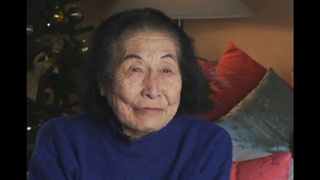Interviews
The philosophy of playing Taiko
Whether they’re playing it the right way I think is the big question for us because, for us, it’s more than an instrument, more than just music. It’s because, like I said, it’s the philosophy of playing. I think for us, it’s really more of a lifestyle. It’s a way of life that’s really being engrained in how we kind of do everything. So it’s not just coming once a week and playing on a barrel drum. It’s really gone beyond that.
We’ve always said that’s the question, “What is a Taiko player?” Or at least like to ask that question. Is a Taiko player just because you’re sitting there and you have a hachimaki on, a happi coat, and you’re play with bachi? Is that a Taiko player? Or is a Taiko player someone that’s playing in the orchestra, and they happen to have a Taiko there? Is that a Taiko player? If it’s in a jazz set, is that a Taiko player? If you’re in the middle of the Midwest playing Taiko, is that a Taiko player? Or if you’re here in San Jose, are you a Taiko player? I think it really does come down to the spirit and philosophy again and understanding where all that comes from versus not just playing just a big drum. I think that’s the challenge for Taiko in the future—being able to retain that spirit.
Date: January 26, 2005
Location: California, US
Interviewer: Art Hansen, Sojin Kim
Contributed by: Watase Media Arts Center, Japanese American National Museum
Explore More Videos

Both Japanese and American identities though Japanese dance
(1918-2023) Nisei Japanese kabuki dancer


Results of being more American than Japanese
(1924-2018) Researcher, Activist

Trying to convey the meaning of the songs
(b. 1981) Enka Singer

Internship on a Native American reservation in Arizona
(b.1952) Master drummer, artistic director of the Taiko Center of the Pacific

Being free of the tradition
(b.1952) Master drummer, artistic director of the Taiko Center of the Pacific

Different tension between East Coast and Los Angeles
Japanese American Creative designer living in Japan

Reasons for starting taiko in America
(b.1943) Shin-issei grand master of taiko; founded San Francisco Taiko Dojo in 1968.

Tire Dojo
(b.1943) Shin-issei grand master of taiko; founded San Francisco Taiko Dojo in 1968.

Japanese musical education
(b.1943) Shin-issei grand master of taiko; founded San Francisco Taiko Dojo in 1968.

Differences between American and Japanese taiko
(b.1943) Shin-issei grand master of taiko; founded San Francisco Taiko Dojo in 1968.

Meeting Japanese Americans from the mainland in MIS
(1923-2011) Lawyer, MIS veteran, founder of Francis and Sarah Sogi Foundation

Dream of "taiko" in the English dictionary
(b.1943) Shin-issei grand master of taiko; founded San Francisco Taiko Dojo in 1968.


Blue-eyed doll
(1914-2018) Founder of the largest gladiolus bulb farm in the United States.
